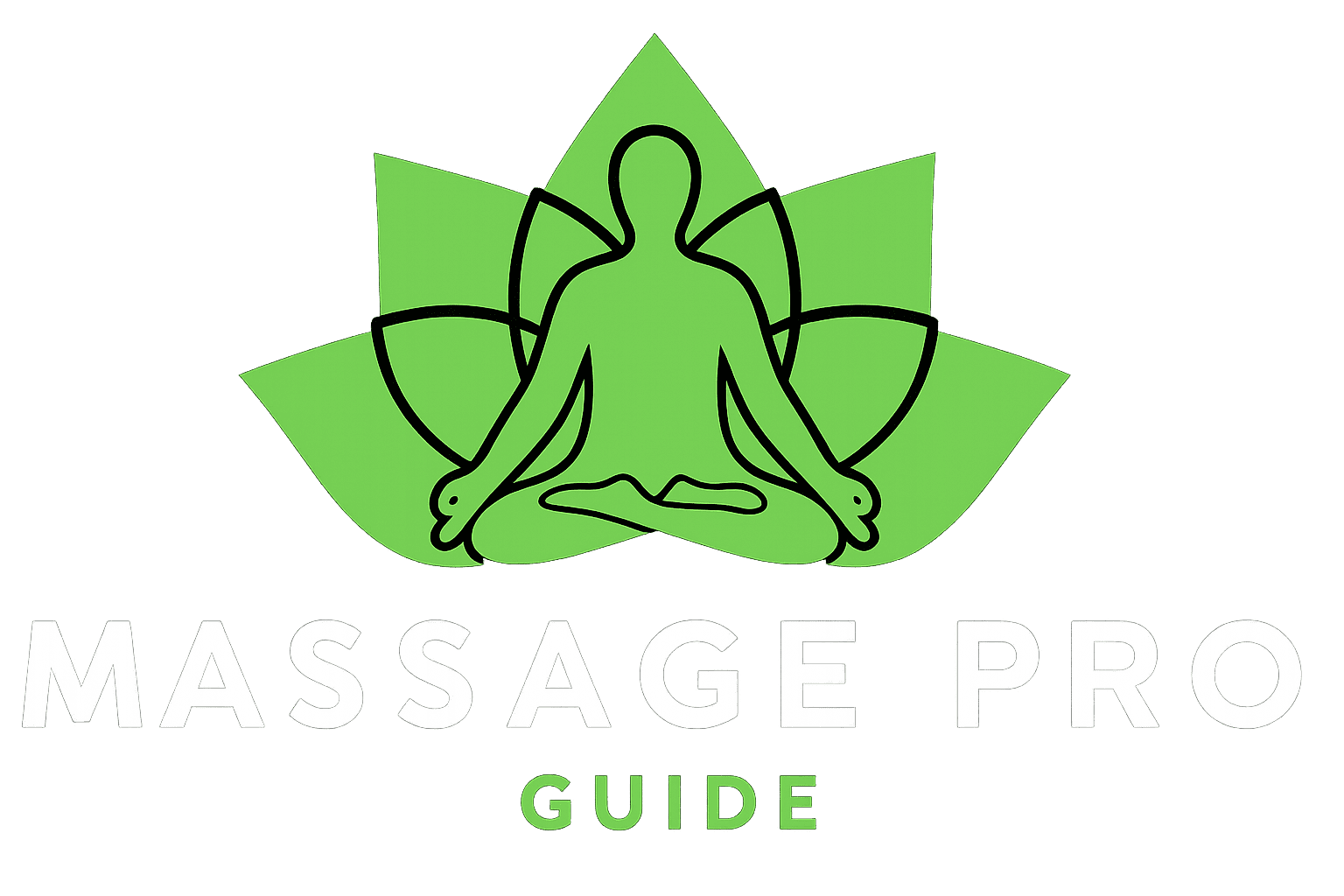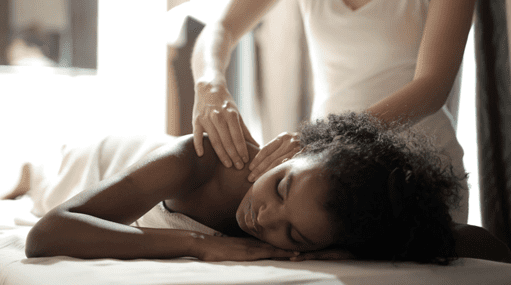Are you familiar with the revitalizing sensation that follows a soothing massage, where stress melts away, and you emerge with a refreshed sense of well-being? However, you may wonder if feeling fatigued the day after your massage appointment is common. In this blog post, we’ll look into the intriguing subject of can a massage make you feel tired the next day.
Massage therapy has numerous advantages, but it is essential to be aware of its potential side effects on your health. A massage can cause a variety of physiological responses that may briefly leave you tired, ranging from toxin release to enhanced circulation and relaxation. We hope to provide insights and recommendations to improve your post-massage recovery by investigating the science behind massage fatigue, variables influencing post-massage fatigue, and ways for minimizing it.
So, let’s unravel the mysteries surrounding fatigue after a massage and empower you to embrace the many benefits of this therapeutic practice while understanding and managing its potential aftermath.
Can a massage make you feel tired the next day – fatigue after a massage
Table of Contents
Yes, it is possible to feel tired the day following a massage. Massage can briefly cause weariness due to muscular manipulation, toxin release, and deep relaxation. However, post-massage fatigue is a common and natural reaction that usually goes away within a day or two. Understanding the elements that influence post-massage fatigue and following recovery measures can assist in reducing its impact and improving your overall massage experience.
Factors Influencing Post-Massage Fatigue
Several variables can impact the level of post-massage fatigue experienced by people. By considering these aspects, you can better understand why some people feel more weary after a massage session than others.
1. Massage Session Duration and Intensity:
The length and intensity of the massage can both contribute to post-massage fatigue. Longer or more intensive sessions may result in a more prominent release of toxins and a deeper level of relaxation, perhaps leading to greater fatigue.
2. Individual Sensitivity and Tolerance:
Everyone reacts differently to massage treatments. Some people are more sensitive to touch, while others can tolerate more intense pressure. Understanding and conveying your sensitivity to your massage therapist can help them adjust the treatment to your requirements, thus reducing post-massage fatigue.
3. Pre-existing issues or Chronic Pain:
Your body’s response to a massage may be affected if you have pre-existing health issues or chronic pain. In some cases, releasing toxins and relaxing muscles can temporarily exacerbate symptoms or lead to increased fatigue. You must inform your therapist about any underlying conditions to ensure they can adjust the massage techniques accordingly.
4. Communication with Your Massage Therapist:
It is critical to communicate well with your massage therapist. During the session, expressing concerns, pain, or preferred degree of pressure helps them adapt the therapy to your preferences. The risk of post-event fatigue is reduced by clear communication, which also ensures a more personalized experience.
Common Symptoms of Fatigue After a Massage

Experiencing fatigue after a massage is not uncommon and can manifest in various ways. You can better navigate and manage your healing process if you understand the frequent signs of post-massage fatigue.
· Physical Symptoms:
Muscle pain and overall physical fatigue are normal after a massage. Muscle and tissue manipulation throughout the session may cause brief pain or soreness. This discomfort usually indicates that your body is responding to the therapeutic benefits of the massage and will go away within a day or two.
· Mental and Emotional Effects:
In addition to physical symptoms, you may experience mental and emotional changes after a massage. Some people report experiencing mental fog or grogginess, as though their minds are relaxed. It is also possible to have increased emotions or sensitivity. The body’s relaxation response causes these effects and should progressively fade as your body adjusts.
· Duration and Expected Timeline:
The duration of post-massage fatigue varies from person to person. Some people may feel exhausted for a few hours, while others may feel fatigued for several days. It’s critical to remember that these symptoms are often transient and are part of the body’s healing process.
Read: Why Does It Hurt to Massage My Calves
Strategies to Minimize Fatigue and Enhance Post-Massage Recovery
While post-massage fatigue is typical, there are numerous tactics you may use to reduce its effects and aid your body’s healing process. Here are some suggestions to improve your post-massage experience:
1. Adequate Hydration:
It is critical to drink enough water after a massage. Hydration aids in the removal of toxins generated during the massage by flushing them out of your body. Drink plenty of water in the hours after your session to aid with detoxification and healing.
2. Gentle Stretching activities:
Gentle stretching activities will help relieve muscular discomfort and stiffness after a massage. Stretching improves blood flow, increases flexibility, and alleviates post-massage soreness. Gentle stretches should be used for regions that are tight or painful.
3. Rest and Quality Sleep:
After a massage, your body requires time to recover and mend. Following your session, prioritize relaxation and obtain a decent night’s sleep. Quality sleep enables your body to heal properly, minimizes fatigue, and amplifies the massage’s advantages.
4. Balanced Nutrition and a Healthy Lifestyle:
Supporting your body’s recovery with healthy food and lifestyle can help to reduce post-massage fatigue. Nutrient-dense diets supply the building blocks required for healing and regeneration. Stress management skills and general well-being might also help post-massage recovery.
Applying these tactics may improve your post-massage recovery and reduce post-massage fatigue. Remembering that everyone reacts differently is crucial, so pay attention to your body and alter your techniques as needed.
Read: Can a Massage Chair Hurt Your Back
Conclusion
Finally, fatigue after a massage is typical, and understanding its origins and consequences will help you navigate your post-massage recovery more efficiently. The science of massage fatigue demonstrates that the body’s healing reaction, the release of toxins, and deep relaxation contribute to temporary drowsiness.
You may manage post-massage fatigue more effectively by considering aspects such as massage time and intensity, individual sensitivity, pre-existing conditions, and effective communication with your therapist. Remember that physical symptoms like muscle aches and mental consequences like mental fog are normal and should be expected.
Prioritize appropriate water, light stretching exercises, adequate rest, a balanced diet, and a healthy lifestyle to improve your post-massage recovery. If you have chronic tiredness, prolonged pain, or unexpected symptoms, you should seek expert help.
Embrace the numerous benefits of massage therapy while understanding and managing the potential effects of post-massage fatigue. With these tips, you may make the most of your massage session and benefit from its reviving effects.

